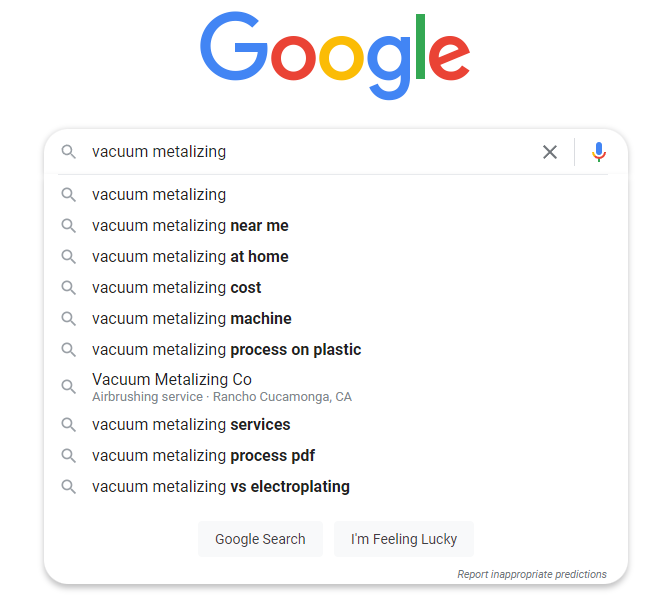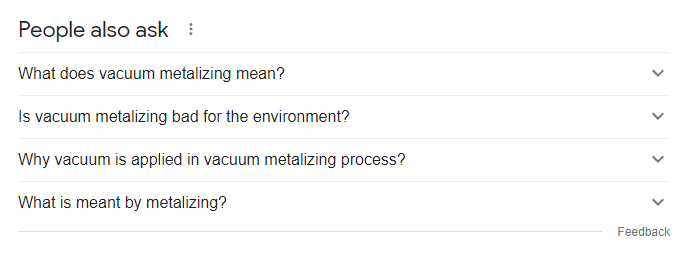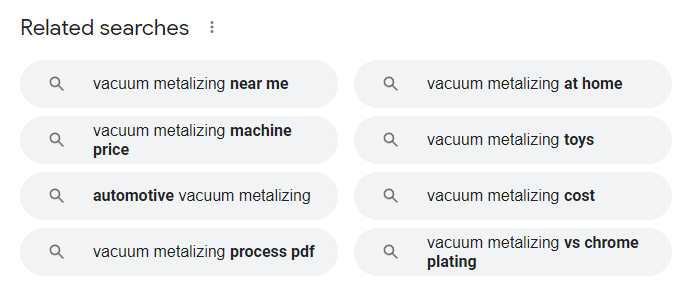Short Tail vs Long Tail Keywords
What are short tail and long tail keywords and why does your website need both to rank?
Keywords are an integral part of search engine optimization (SEO) and a successful digital marketing strategy. Keywords are the phrases that people use to look things up on the internet and by adding appropriate keywords to a web page you are signaling to Google and searchers that your page is relevant to their search.
What is a Short Tail Keyword?
A short-tail keyword is one or two words and tends to be a general search query. These keywords tend to display generic results on the search engine results page (SERP). They don't clearly define the intent of the search by the user, are highly competitive to rank with Google, and provide low conversion rates.
What is a Long Tail Keyword?
A long-tail keyword is a longer phrase (3+ words) and is descriptive of what a searcher is looking for online. The search intent is specific and relevant results are expected by the user. Long-tail keywords tend to be easier to rank for, are very targeted towards traffic and conversions, and attract higher-quality traffic to your site (meaning less traffic, aka removing the fluff). The great thing about long-tail keywords is that they also capture short-tail keywords!
What is the Difference between a Short-Tail Keyword and a Long-Tail Keyword?
The biggest difference between the two is search volume. Short-tail keywords generate more traffic to your site but lead to less conversions. Long-tail keywords generate less traffic but high conversions (they also tend to be less competitive!).
| SHORT-TAIL KEYWORDS | LONG-TAIL KEYWORDS |
|
High Search Volume |
Low Search Volume |
| Highly Competitive | Low Competition |
| Super Generic | Specific Search Term |
| 1 or 2 words | 3+ Words |
| LOW Conversion Rate | HIGH Conversion Rate |
Here is an example of what this might look like:
You go to your search engine and you type in a generic term for your initial search, say you're not super sure what you are looking for yet. You might type in a term like vacuum metalizing into the search bar. You see search results of definitions. You might click through to a site to learn more about what that means (you might visit many sites to learn more).
What if you had a business that uses vacuum metalizing for one of your products? You would search for vacuum metalizing services and start your search by looking at companies that offer this as a service. These results are ACTIONABLE. You find the company that shows you through their website that they not only offer the service you are looking for but they have an industry page that says they can help you specifically! Once you have found the service you're looking for you would get in touch with them, either by phone or by contacting them through their website, converting to a lead for that company.
This is how keywords can work for YOUR website, too!
How to Find Short and Long-Tail Keywords?
First, how would you search for your services and products with the intent to buy (or sign-up)?
In the example of vacuum metalizing you might make a list that looks like vacuum metalizing services, vacuum metalizing company, vacuum metalizing equipment, vacuum metalizing plastic services, vacuum metalizing New Hampshire, vacuum metalizing Boston, and other actionable phrases.
There are a variety of free tools to find these keywords available to you!
- Google Search Console: Find the keywords being used to find specific pages on your site and use them to optimize the page.
- Google's Autocomplete Tool: The Google search bar can give you insight into what people are searching for to use to optimize your pages.

- People Also Ask: If you type in your keyword, Google will show you what people are asking in relation to that keyword. These are great for an FAQ section on a page or a blog post topic.

- Google's Related Searches: Google also will show you Related Searches near the bottom of the search engine results page (SERP).

- Non-Google Free Tools: You can also use tools like WordStream's Free Keyword Tool, or UberSuggest.
There are also a number of paid services available for keyword research, our favorites are:
- AHREFs - Discover thousands of great keyword ideas, analyze their ranking and difficulty, and calculate their traffic potential.
- Semrush - Boost your traffic and conquer the SERPs with Semrush’s SEO keyword research tools.
Industrial Marketing's SEO Experts can also provide keyword research. Check out Industrial Marketing's Services to learn about how you can launch your website up the SERP!
Should I use Short or Long-Tail Keywords on My Website?
Short answer, yes!
By using a mix of short and long-tail keywords you can reach more people at all stages of their buying journey. Defining the short-tail keyword is a great way to bring in top-of-funnel traffic, answering common questions related to your service or product is a great way to bring in middle-of-the-funnel traffic, and long-tail actionable keywords bring in buyers at the bottom-of-the-funnel.
Your Strategy Coach (READ: What Can My Strategy Coach Help Me With?) can guide you through selecting keywords to use for optimization and our SEO Experts can take that task off your hands! We're here to help either way.
